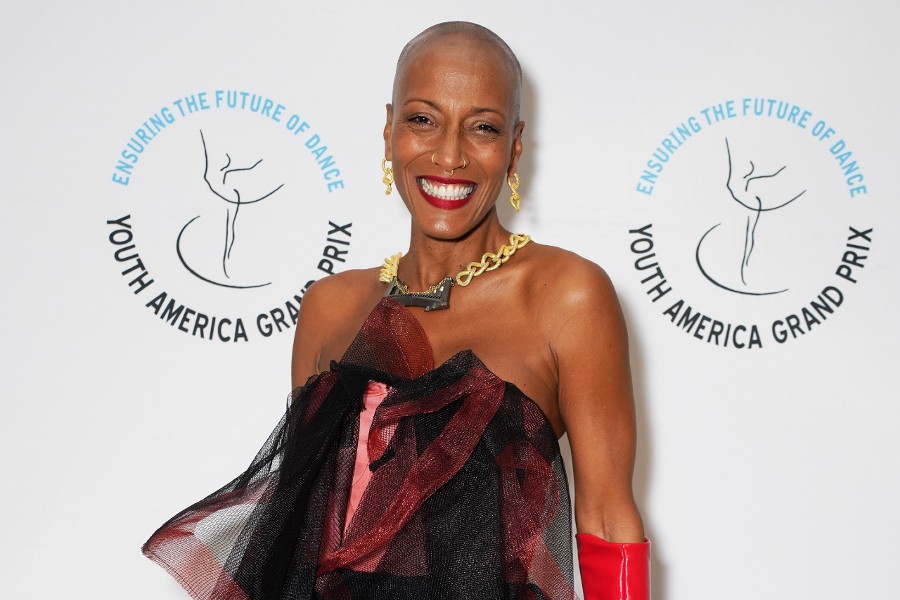 12 Years a Slave, the third feature from British artist turned filmmaking auteur Steve McQueen, may or may not take home all the Oscars next year, but it’s undoubtedly one of the most accomplished and moving films to come along in quite some time. Chiwetel Ejiofor stars as Solomon Northup, a free black man who is kidnapped and sold into slavery in the pre–Civil War South. The remarkable ensemble cast includes Michael Fassbender, Sarah Paulson, Benedict Cumberbatch, Brad Pitt, Michael K. Williams, and newcomer Lupita Nyong’o, whose portrayal of a beautiful slave has earned her major Best Supporting Actress buzz.
12 Years a Slave, the third feature from British artist turned filmmaking auteur Steve McQueen, may or may not take home all the Oscars next year, but it’s undoubtedly one of the most accomplished and moving films to come along in quite some time. Chiwetel Ejiofor stars as Solomon Northup, a free black man who is kidnapped and sold into slavery in the pre–Civil War South. The remarkable ensemble cast includes Michael Fassbender, Sarah Paulson, Benedict Cumberbatch, Brad Pitt, Michael K. Williams, and newcomer Lupita Nyong’o, whose portrayal of a beautiful slave has earned her major Best Supporting Actress buzz.
Krista Smith spoke with McQueen about the story behind the movie, his love for Michael Fassbender, and what jazz and filmmaking have in common.
Krista Smith: This film is not only about race, it’s about America. Every nation and civilization in history has horrible things in its past.
Steve McQueen: Not only just America but the world. Slavery was not unique to North America. Far from it. It was all over Europe, all over the world. It was an industry. But of course racism comes into it. I’ll tell you a story. One of the last things my father said to me was a story that happened in the late 50s. What they used to do in Florida is get migrant workers from the West Indies to pick oranges. My father was one of those young people, a teenager, and one day he and two Jamaican guys said, “Come on, let’s go out and get a drink.” They climbed over the wall of their camp and went out to this town to get a drink at a bar. When they walked into the bar, it was almost like a Western; everyone turned their heads and looked at them. So one of the Jamaican guys says to the bartender, “I would like a drink, please.” And the bartender said, “We don’t serve niggers.” So the Jamaican guy says, “Then we’ll serve ourselves.” And he took the bottle and smashed it over the bartender’s head. And there was a big fight, and my father ran out of there. The two Jamaicans were shot dead, and my dad hid in a ditch all night until he could make his way back to the camp. Why I’m telling you that is the whole idea of what people had to suffer [long after slavery ended]. The evidence of slavery is everywhere, not just here in the United States but in the U.K., too; in the prison population, mental illness, education, drugs, unemployment. The list goes on, and it hasn’t really been dealt with.
This is your third full-length feature film. What made you want to take on this subject?
I wanted to make a film about slavery because I hadn’t seen it before. I hadn’t seen this part of history visualized. As a filmmaker, I thought to myself, I want to do it. Not just because of my background but because I wanted to experience that part of history in the cinema. So I had this idea that this free black man from the North gets kidnapped and dragged into the maze of slavery, and we, the viewer, go with him through the ordeal of him trying to get back home. I got stuck a bit with the script, and what happened was my wife said to me, “Why don’t you look into real accounts of slavery?” And her being a historian, we both did our research, and she came up with this book called 12 Years a Slave, and she said to me, “I think I’ve got it.” And if there ever was an understatement! Everyone thinks they know about slavery. But when I started reading that book and turned the pages of that book, every turn of the page was a revelation. When I finished the book, I was so astonished, but at the same time I felt so stupid. Why did I not know this book? I felt ridiculous, really. But then I slowly realized no one I knew knew this book. The strangest thing was having this original idea and then finding this book. It was like a finished script. I think sometimes you can become a magnet. It was astonishing, and I had to make the film.
We hear a lot about how hard it is to get movies financed. How was the process of getting this film made?
One person who was working on the movie said to me, “Your impossible movie.” That’s how difficult it was. It was all hands on deck, and somehow it got financed. On the outside it seems easy, because by that time myself and Michael [Fassbender] had a little bit of stock, and of course Brad came in, Mr. Pitt came in; it was a lot of stock, and it helped push the project forward. I can’t say it was easy, but it got done, and it got done for a very small amount of money. But maybe because I’m English, I know how to stretch a pound.
This is your third film with Fassbender. Did anything this time around surprise you about working with him?
It’s that I love him more. I love him deeply. It’s an understanding. I don’t question it; that’s the funny thing. I think we both don’t question it. I think we have something and we just get on with it.
His character, Epps, is so evil, but also in such pain and so tormented.
The thing is, he is deeply in love with Patsey. I mean, Patsey may not be deeply in love with him, but he’s deeply in love with Patsey. And he doesn’t understand it. He doesn’t understand that he is in love with this slave. But what he doesn’t know is that you don’t choose love, love chooses you. And he, through the pain of this love, apparently tries to destroy that love by trying to destroy her, and it’s tragic. Don’t get me wrong: the person I feel the most pain for is Patsey. But in order to understand people, one has to understand what they do. And just as much as I am Solomon, I am Epps. Epps is a human being. I think people like to write him off as a monster, but he’s one of us.
How much do you prepare, and how much of what happens on-screen is spontaneous?
Oh, I prepare like crazy. But what you’re after is almost like jazz. You write the music, you have everything, you’re prepared, but you’ve still got that aspect, that range where you can improvise. It’s like Miles Davis’s My Funny Valentine: you have the melody, but from that melody you can improve, you can go off, but only within that range.
What has been the most surprising thing that has happened to you since Shame and coming back into Hollywood with 12 Years a Slave? What has been the difference?
What has surprised me is that some people don’t think audiences are as intelligent and as interested in certain narratives as they actually are. I think audiences are hungry for stories, and that is surprising how some people don’t think they actually are.
Do you have another movie that you’re prepping for?
A couple things, but my son just started school this year, and I think I’m going to take some time off. I’ve got to be there for my family, and that’s the most important thing. My family, my wife, gave me the book, and now it’s time to give it back.
Become a Harlem Insider!
By submitting this form, you are consenting to receive marketing emails from: Harlem World Magazine, 2521 1/2 west 42nd street, Los Angeles, CA, 90008, https://www.harlemworldmagazine.com. You can revoke your consent to receive emails at any time by using the SafeUnsubscribe® link, found at the bottom of every email. Emails are serviced by Constant Contact



















